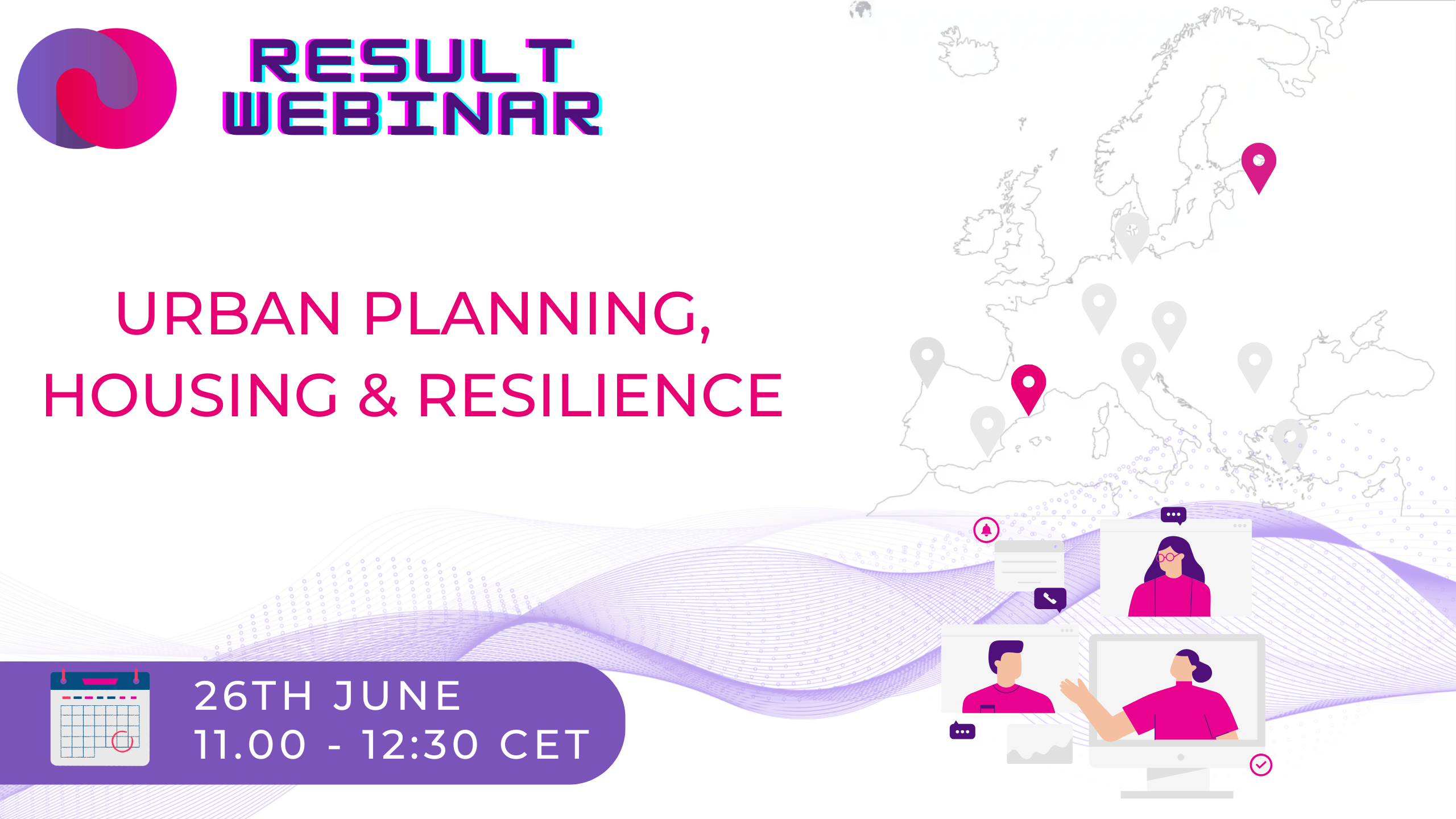Results Webinar III: Urban planning, housing & resilience (Multilocal & LiquidHousing Labs)

The FutuResilience project funded ten labs that bring together multiple stakeholders to co-create evidence-informed policies aimed at strengthening societal resilience against various crises. Emphasizing knowledge valorisation for policy uptake, the labs served as experimental spaces for policy testing, using a diverse range of approaches and tools with a strong focus on future-oriented thinking.
Over approximately 15 months, each lab began by defining concrete challenges, mapping key stakeholders, and exploring how these challenges might evolve over time by developing different scenarios. With a focus on enhancing societal preparedness, the labs’ stakeholders collaborated to design evidence-based policy actions capable of addressing the initial challenges across multiple plausible future scenarios.
This webinar series marks a key milestone and an opportunity to showcase the process and insights gained from the different labs, highlighting their results, methodologies, outputs, and key lessons learnt. In particular, this webinar will focus on two labs, MULTILOCAL & LIQUIDHOUSING, which approach different aspects of urban planning: new residential patterns, mobility and housing exclusion, offering practical tools and policy insights to enhance societal resilience.

The MULTILOCAL Lab explored how local governments can adapt to the growing trend of multilocal living — where people live and work across multiple locations. This shift had accelerated due to overlapping crises such as the COVID-19 pandemic, the war in Ukraine, rising living costs, and the climate crisis. To help municipalities navigate these complex changes, the lab co-developed a digital tool supporting population-based planning. Tested in Tartu County (Estonia), the tool enabled local governments to visualise the impact of demographic shifts and labor market dynamics on income tax revenues. In collaboration with experts and stakeholders, the lab also developed policy recommendations to effectively respond to the challenges and seize the opportunities identified in the case study region.
The LIQUIDHOUSING Lab has examined the complex and often hidden forms of housing exclusion in Tarragona (Spain)—including squatting, illegal subletting, overcrowding, and other precarious housing conditions. Drawing on the ETHOS typology of hidden homelessness, the lab has gathered empirical evidence and engaged directly with local policymakers, civil society organizations, and affected communities through co-creation events. The lab has developed evidence-based policy solutions and tested their feasibility, ensuring that the most vulnerable social groups are at the center of future housing and urban policies.
Preliminary Agenda
- Welcome and introduction: Gianfranco Franz, UNIFE
- MULTILOCAL Lab "Supporting the governance of new residential mobility patterns and multilocal": Tiit Tammaru, University of Tartu & Marko Somer, CentAr.
- LIQUIDHOUSING Lab "Solution to the liquid housing issue, with focus on marginalised population ", Hector Simón Moreno, Universitat Rovira i Virgili
- Moderated Discussion, Elina Griniece, EFIS Centre
- Q&A Session, Caterina Rondoni, UNIFE
Join the event: https://events.teams.microsoft.com/event/b44d38d4-752e-4dc4-90ba-126b2e7c0cec@8eaef797-67a0-42ea-8b25-c45c1fb67fcd